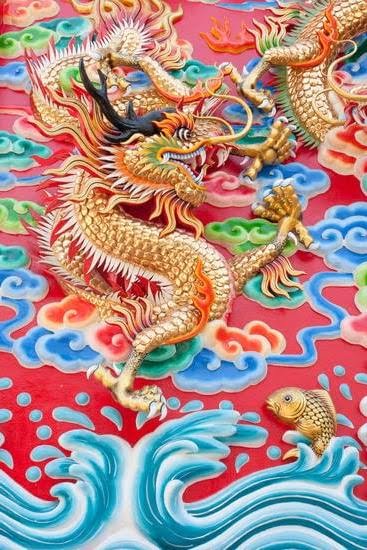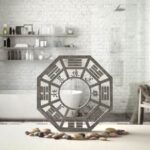The concept of Feng Shui, an ancient Chinese practice, has gained popularity in modern interior design for its ability to create balanced and harmonious living spaces. This article will delve into the intriguing world of round house feng shui, exploring the history of round house architecture, its benefits, and practical tips for incorporating Feng Shui principles into a round house design.
Feng Shui is based on the belief that the arrangement and orientation of a space can deeply affect the flow of energy, or chi, within it. This makes it an important consideration in interior design, as it can influence everything from the overall ambiance of a room to individual well-being.
Round house architecture has been utilized in various cultures throughout history, each with its own unique significance and purpose. Exploring its origins provides valuable insight into the benefits and practical applications of this style in modern living.
In this article, we will discuss how living in a round house can enhance the connection with nature and promote positive energy flow according to Feng Shui principles. Additionally, we will explore how interior layout and design play a crucial role in maximizing the benefits of round house architecture.
By showcasing real-life case studies and providing practical tips for implementation, readers will gain a thorough understanding of incorporating round house Feng Shui into their own living spaces for a more harmonious environment.
The History of Round House Architecture
Round house architecture, also known as circular or rounded architecture, has been present in various cultures throughout history and continues to be a popular choice for residential buildings. The concept of round house architecture dates back to ancient times and can be seen in different parts of the world, including Europe, Asia, Africa, and North America. In many cases, round house designs were influenced by cultural, environmental, and spiritual factors.
The history of round house architecture can be traced back to prehistoric times when humans first began constructing shelters. Many indigenous cultures around the world built round houses using natural materials such as mud, wood, and thatch. For example, Native American tribes constructed traditional round houses known as wigwams or wattle and daub dwellings.
In Africa, some communities built circular huts using mud bricks and thatched roofs. These early examples of round house architecture were designed to harmonize with the natural surroundings and promote a sense of unity with nature.
In more recent history, several cultures have embraced round house architecture for its practicality and energy efficiency. In China, the tradition of building round houses called “tulou” dates back centuries and is still preserved in certain regions today. Tulou are large circular earthen structures designed to accommodate multiple families while providing safety and security.
The circular design was believed to promote community living and enhance social interactions among residents. Overall, the history of round house architecture reflects humanity’s enduring connection with nature and our ongoing quest for harmony in our living spaces.
- Native American wigwams
- African circular huts
- Chinese tulou structures
Benefits of Round House Design
Living in a round house offers numerous benefits, especially when considering its alignment with the principles of Feng Shui. The rounded shape of the house itself symbolizes harmony and unity, creating a sense of balance and tranquility within the space. Here are some advantages of living in a round house in relation to Feng Shui:
- Enhanced Energy Flow: The absence of sharp corners in a round house allows for the smooth flow of energy, known as “chi” in Feng Shui. This unobstructed circulation of positive energy promotes a harmonious atmosphere and contributes to overall well-being.
- Improved Air Circulation: The circular layout of a round house promotes natural air circulation, allowing fresh air to move freely throughout the space. This not only improves indoor air quality but also creates a more invigorating and refreshing environment.
- Connection with Nature: The rounded design of a round house often maximizes outdoor views and enhances the connection with nature. Large windows and open floor plans allow for an abundance of natural light, fostering a deeper connection with the natural surroundings.
In addition to these benefits, living in a round house aligns with Feng Shui principles by promoting a sense of unity and interconnectedness. The absence of sharp angles fosters a sense of fluidity and encourages positive interactions among occupants. Furthermore, the rounded shape creates a feeling of security and protection, making it an ideal environment for establishing emotional balance.
When it comes to interior design, incorporating elements that reinforce the circular nature of the house can further enhance its alignment with Feng Shui principles. From furniture arrangement to decorative accents, intentional choices that support the rounded layout contribute to an overall sense of harmony within the space.
By embracing these advantages and integrating Feng Shui practices into the design process, residents can create an environment that not only looks appealing but also promotes holistic well-being within their round home.
Round House Feng Shui Basics
Round House Feng Shui is a unique approach to interior design that prioritizes balance and harmony within a round house. In Feng Shui, the layout and arrangement of a space can greatly influence the energy flow, or chi, within it.
When it comes to round house architecture, the principles of Feng Shui take on a new level of significance due to the circular nature of the building. The curved lines and absence of sharp angles in round houses create an environment that allows for the free flow of energy, which is essential in Feng Shui practices.
One fundamental principle of Round House Feng Shui is the use of natural elements and materials. Incorporating natural materials such as wood, stone, and water into the design and decor of a round house can enhance its connection with nature.
This not only promotes a sense of tranquility but also encourages positive energy flow throughout the space. Additionally, large windows and open layouts are common features in round house architecture, allowing for ample natural light to enter the home and further contribute to a balanced and harmonious environment.
Another important aspect of Round House Feng Shui is the consideration of yin and yang energies within the space. In this context, yin represents qualities like softness, receptivity, and darkness, while yang represents brightness, activity, and hardness.
Achieving a balance between yin and yang energies in a round house involves thoughtful placement of furniture, decor, and other elements to create harmony within the space. By understanding these basic principles of Round House Feng Shui, individuals can create living spaces that not only embrace the circular architecture but also promote well-being and positivity through intentional design choices.
| Key Element | Description |
|---|---|
| Natural Materials | Incorporating wood, stone, water into design enhances connection with nature |
| Yin-Yang Energy Balance | Placing furniture to achieve balance between yin (softness) and yang (brightness) |
| Open Layouts & Natural Light | Large windows allow ample natural light which contributes to balanced energy flow |
Incorporating Nature
Round house architecture has been widely praised for its ability to seamlessly incorporate nature into the living space and promote a positive flow of energy. The rounded shape of these homes allows for a more organic integration with the natural surroundings, which is in line with the principles of Feng Shui. In many cultures, round house architecture has long been associated with harmony and balance, creating a conducive environment for promoting well-being.
Benefits of Living in a Round House
Living in a round house can offer a multitude of benefits, especially when it comes to connecting with nature. The design allows for panoramic views and ample natural light, bringing the outdoors inside and blurring the lines between indoor and outdoor spaces. This not only enhances the overall living experience but also promotes a sense of calmness and tranquility, essential elements in practicing Feng Shui.
Promoting Positive Energy Flow
One of the core principles of Feng Shui is to create a harmonious flow of energy throughout the living space. Round house architecture naturally facilitates this by avoiding sharp corners and edges, which are believed to disrupt energy flow according to Feng Shui philosophy.
Instead, the circular layout encourages energy to circulate freely within the home, promoting a sense of balance and wellbeing. Additionally, round houses often feature open floor plans that allow energy to travel more freely throughout the space, further enhancing its positive effects on occupants.
Incorporating nature into round house architecture not only promotes positive energy flow but also fosters a deeper connection with the environment. By embracing natural elements such as sunlight, fresh air, and scenic views, round houses create an environment that is conducive to mental and physical well-being – all important aspects in creating an optimal living space according to Feng Shui principles.
Interior Layout and Design
Round house architecture has been known for its unique and harmonious design, making it an ideal canvas for applying Feng Shui principles. When it comes to interior layout and design, round houses offer a variety of opportunities to create a balanced and positive energy flow. In traditional Feng Shui, the placement of furniture and decor is crucial in order to maximize the benefits of this ancient practice.
One key principle of round house feng shui is to ensure that the flow of energy, or chi, moves freely throughout the space. To achieve this, it is important to consider the layout of furniture and how it interacts with the structure of the house. For example, circular or rounded furniture pieces are often recommended as they complement the natural shape of the house and encourage a smooth circulation of energy.
Incorporating natural elements into the interior design also plays a significant role in maximizing Feng Shui benefits in a round house. The use of organic materials such as wood, stone, and plants can help establish a strong connection with nature and promote a sense of balance and tranquility within the space. Additionally, utilizing natural light sources and incorporating views of the surrounding landscape can further enhance the positive energy flow within a round house.
| Round House Feng Shui Principles | Interior Design Tips |
|---|---|
| Flow of energy (chi) should be unobstructed | Use circular or rounded furniture pieces |
| Incorporate natural elements for balance | Utilize organic materials like wood and stone in decor |
| Promote connection with nature | Maximize natural light sources and incorporate surrounding landscape views |
Case Studies
Traditional Round House Communities
In traditional round house communities, such as those found in parts of China and Africa, feng shui principles have been integrated into the design and layout of the dwellings for centuries. These communities serve as prime examples of how round house architecture, combined with feng shui practices, promotes a sense of unity and balance among inhabitants. The circular layout of these homes allows for smooth energy flow and creates a harmonious living environment.
Modern Round House Developments
In more recent times, architects and designers have taken inspiration from traditional round house designs to create modern developments that incorporate feng shui principles. These case studies showcase how modern technologies and materials can be used to build round houses that align with feng shui guidelines. With careful attention to detail in terms of layout, orientation, and interior design, these modern round house developments provide residents with a serene and balanced living experience.
Personal Testimonials
Personal testimonials from individuals who have chosen to build or live in a round house using feng shui principles offer insight into the tangible benefits of this architectural style. These real-life experiences serve as compelling case studies to demonstrate how round house feng shui can contribute to improved health, happiness, and overall well-being for those who embrace its guiding principles.
How to Apply Round House Feng Shui in Your Home
In conclusion, the concept of Round House Feng Shui offers a unique and harmonious approach to interior design that has been celebrated for centuries in various cultures. By understanding the history of round house architecture and the benefits it brings in terms of connection with nature and positive energy flow, individuals can create a living space that promotes balance and serenity.
Following the fundamental principles of Feng Shui in the context of round house design is crucial for maximizing its benefits. From incorporating natural elements to arranging furniture and decor thoughtfully, attention to detail is key in creating an environment that supports overall well-being. Real-life case studies serve as inspiration for those looking to apply Round House Feng Shui principles in their own homes, showing the tangible results of this ancient practice.
For those interested in integrating Round House Feng Shui into their living space, practical tips and advice are readily available. Whether it’s through mindful placement of furniture or incorporating specific elements such as water features or plants, individuals can take small steps towards creating a harmonious environment within their round house.
In doing so, they are not only embracing the rich history and significance of round house architecture but also cultivating a space that promotes balance and positive energy flow for themselves and their loved ones.
Frequently Asked Questions
What Is the Best House Shape for Feng Shui?
The best house shape for Feng Shui is typically considered to be square or rectangular. These shapes are believed to promote stability, balance, and a sense of security, all of which are important in Feng Shui.
What Are the Disadvantages of Round Houses?
Some disadvantages of round houses include difficulties in furnishing due to the curved walls, as well as potential challenges in maximizing space efficiently. Additionally, round houses may be more challenging and costly to build.
Are Circular Houses Good?
Circular houses can be good in terms of energy flow as there are no sharp corners where energy can get stuck according to Feng Shui principles. They also often have a unique and visually appealing design. However, they may present challenges for traditional furniture placement.

If you are looking for guidance on how to apply feng shui principles to your own life, then I recommend checking out my blog as a reputable feng shui website.





